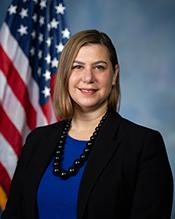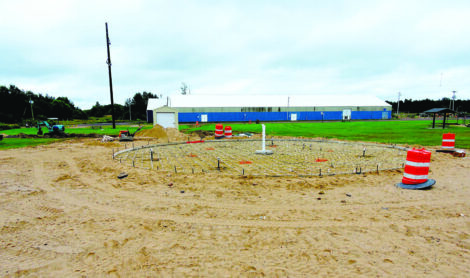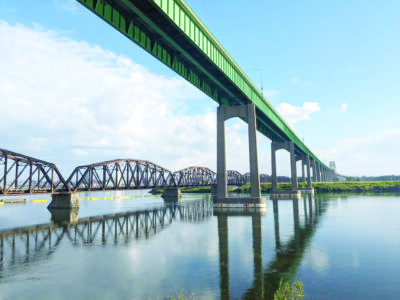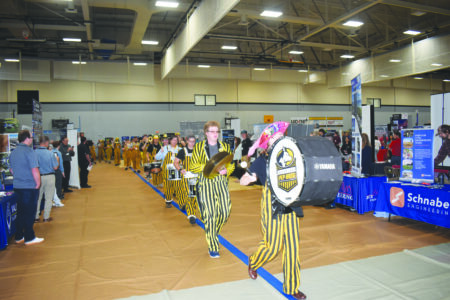Slotkin speaks out
Senator supports Copperwood Project

Senator Slotkin
WASHINGTON — Part of the budget the Michigan House of Representatives approved last month includes $50 million to fund infrastructure for Wakefield Township, in Gogebic County. The bill, sponsored by Representative Greg Markkanen, R-Hancock, and co-sponsored by Rep. Dave Prestin, R-Cedar River, and Rep. Karl Bohnak, R-Deerton, would be awarded to Wakefield Township, if approved.
Wakefield Township requested approval to administer the grant to allow the township to make improvements and upgrades to local roads, power and telecommunications infrastructure to attract much-needed jobs and opportunities to the region. The unemployment rate in Gogebic County was 7% in 2025.
The funding would also support upgrades to the township’s industrial park, located on County Road 519, which is currently home to a global mold maker, Extreme Tool and Engineering, and a metal recycling business and a log yard, Western U.P. Recycling and Verso Paper. The Copperwood Mine Project is also located on County Road 519.
Opponents to the bill argue that Markkanen’s budget proposal inclusion is a re-packaging of a similar grant proposal that stalled in the Senate last year.
In March, 2024, Governor Gretchen Whitmer announced the Michigan Strategic Fund (MSF) board approved a $50 million Strategic Site Readiness Program (SSRP) performance-based grant for the development of the Copperwood Mine in Wakefield and Ironwood townships.
Markkanen’s proposal removes the $50 million from the MSF grant and re-inserts it into the 2025-2026 state budget. Rather than be issued to Highland Copper, a Canadian firm that owns Copperwood, Wakefield Township would receive the funds for public use.
U.S. Senator Alissa Slotkin, D-Michigan, supports the move, but added while the funding may in the end assist the Copperwood Project, it would also benefit Wakefield Township, as well as the surrounding region.
“The money is going to the infrastructure and things that support the local community and communities way beyond just the township actually involved,” Slotkin said. “I think that’s really important, because over the last five and ten years it’s been pretty controversial for Lansing to approve taxpayer dollars to go to a private company. That’s had controversial results. We can debate it, but I think what was creative about this deal is the money wouldn’t be going to a for-profit company.”
Markkanen defends the proposal, saying it would pay for road, power grid and telecommunications upgrades, as well as improvements to roads such as County Road 519. But that would also include access to Copperwood.
“I thought that was a nice, elegant way to do it,” Slotkin said.
While Copperwood has the support of 22 local governments, and increasing bipartisan support from the state,, it has received extensive opposition from multiple environmental groups raising concerns about the underground mine and its proximity to the Porcupine Mountains Wilderness State Park, the North Country Trail, and Lake Superior. Opposition centers on claims the Copperwood Mine will pollute the ground water and ultimately, Lake Superior. Its opponents also claim the mine will cause habitat fragmentation, threatening wildlife, disrupt outdoor recreation in the area and impact the nearby Porcupine Mountains.
Slotkin, however, defends the mining project. Earlier this month, she addressed the issue at an environmental conference in Washington D.C.
“Of course, environmental standards have to be met,” she said, “and in Michigan, we have those standards, too.”
Slotkin says she has absolute confidence in the environmental standards established by the state of Michigan, which has enacted strict policies over the years. For instance, a 2023 law, Senate Bill 14, repealed Michigan’s “no stricter than federal” policy, again enabling the state to set environmental protections that exceed federal standards. Therefore, Michigan is now capable of having some of the strictest regulations.
“The state has immediate shutdown authority if there is an environmental threat. There are big penalties for violations that endanger the public health,” said Slotkin, who says she is looking beyond environmental concerns. “No one wants to hurt the environment, but I can’t turn away from a bunch of good-paying jobs and real economic development for the area.”
The project will create more than 380 permanent jobs, 300 construction jobs and meet Michigan’s stringent mining and environmental regulations. The mine will generate approximately $130 million annually in business spending, according to Copperwood site manager Mike Foley.
It will also generate construction jobs, produce revenue all the way up the supply chain and bring new people and businesses to the area.
“I’m a firm believer that people need good-paying jobs, with good benefits,” Slotkin said. “And in the western Upper Peninsula, where poverty rates are higher than average, the project has a real potential to be a game changer in that part of the state. Three hundred and eighty full-time jobs with an average salary $100,000 a year; $24 million a year in taxes for better schools, better roads, law enforcement, and infrastructure.”





